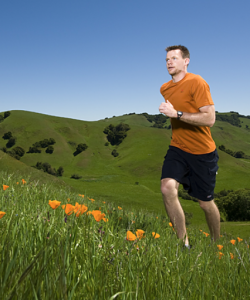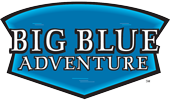Nutrition Training Tips by Nathan Brammeier

Nutrition before, after and during an event has been a hot topic for years. With all the discussion, however, there doesn’t seem to be any agreement on what is best. Sticking with tradition, I will be offering a similar “copout” answer. What works for YOU is what is best. There is no exact percentage of proteins, fats and carbs that works for every athlete. You are biochemically different than everyone else – your nutrition will be just as individualized.
Carbs are so passé:
One prevailing theory is to carbo-load before any endurance event. Typically people think of carbo-loading as gorging a monster plate of pasta the night before an event. True carbo-loading is actually a week-long process that puts a great deal of stress on the body. It is this stress that forces a build-up of glycogen (stored carbohydrates). The added stress greatly outweighs any benefit of carbo-loading. In fact, the signs that your carbo-loading process is working are headache, fatigue, dizziness, etc. There is a more current, revised version in which the severities of side effects are not quite as bad. This all begs the question however; do you really want to change your eating habits a week before a big event?
Change isn’t always good:
Changing your dietary habits before an event can be risky. It’s rare that you would try out new equipment, such as shoes, on the day of a race. So why would you eat differently than you’re used to? Your body becomes used to your dietary habits and training schedule. Changing these habits the week before a race is just adding another stress that your body needs to deal with. Unless you know what specifically works for you, it’s smart to continue eating the way you normally eat.
Fat is NOT the enemy, sugar is:
Because of the stigma surrounding the word “fat”, fatty acids are often overlooked as a wonderful source of energy – especially saturated fats. Short and medium chain saturated fats, such as those found in coconut products, are exceptional sources of energy. It’s important to eat plenty of fat on a daily basis. Eating fat provides a sense of satiety so your body will tell you how much is enough. No counting calories necessary. Healthy fats include: avocados, olives/olive oil, nuts/seeds (preferably raw or roasted yourself), wild caught fish (canned is okay – especially sardines), Grass-fed beef and pastured poultry (it MUST be grass-fed), organic eggs from pastured poultry (eat the whole egg), RAW dairy (butter, cheese, milk, etc. – if it’s not raw, at the very least do organic), and finally all coconut products. I understand that this is completely against conventional wisdom. Just give this a legitimate try and watch your energy increase and sugar cravings disappear.
Do I have to eat another bar?:
Many people love their quick nutrition and think the only way to get it is by force-feeding themselves bars and goo. To be fair, many actually enjoy the taste. Typically however, these products are made with the cheapest ingredients available. In the long run, our bodies spend more energy detoxifying the impurities and other toxins than the product actually gives us!! Keep this up for a few years and you’ll probably start to feel the effects. We want to be ingesting the healthiest foods possible to fuel our tanks. One of the best products I’ve found is coconut water/juice. It is a natural isotonic beverage (replaces electrolytes) that is quick source of carbs. Think of it as a natural Gatorade without all the crap. You can read more on my blog Other quick sources of energy include dates, figs and other fruits; nuts and seeds; coconut and/or coconut milk; beef/turkey jerky; and even PB&J. The key is to get a good mix of protein, fats and carbs and to test out these various foods BEFORE a race to make sure they work for you. Blog link..
The key healthy nutrition is to find the protein, fat and carbohydrate combination that works for you. Stick with it until changes need to be made, which will happen eventually. Remember, your environment changes constantly – new and different stressors come and go. Therefore, your metabolic demands change as well.
Nathan holds Master’s degrees in Organic Chemistry and Human Nutrition. He is the co-owner of CrossFit Adventure (www.crossfitadventure.com).
